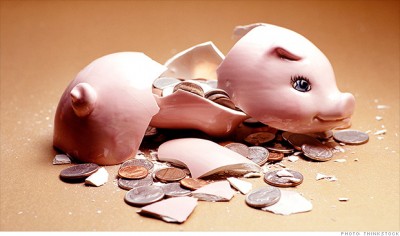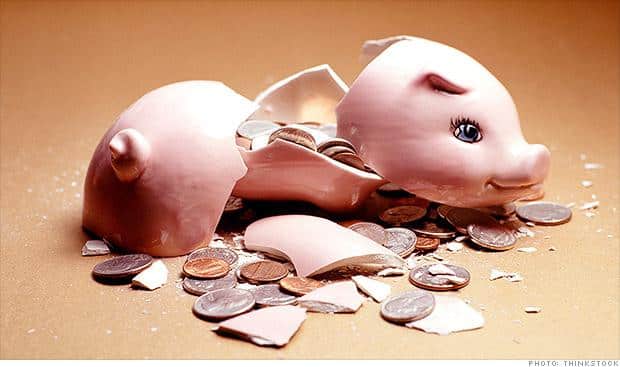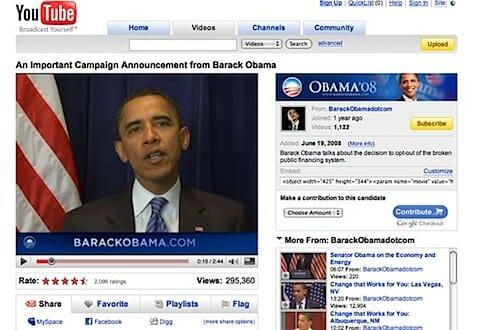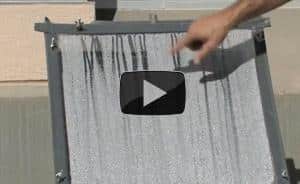
Nearly half of American households are just one paycheck away from financial disaster despite D.C. touting an economic recovery, a new survey indicates.
To make matters worse, another survey found that many Americans’ finances have not recovered from the 2008 economic meltdown.
The most disturbing finding from the new data: A full 43 percent of US households would not be able pay their bills if they went one month without a paycheck, The Springleaf Financial Strength Survey found. They are living on the verge of poverty with no savings.
Other findings from Springleaf’s poll of 2,010 US consumers included:
- 26 percent admitted that they did not save money or rarely save money.
- 24 percent of those polled acknowledged they have less than $250 left in their bank account at the end of the pay period.
- 10 percent said they had less than $50 left by the time payday rolls around.
- 27 percent of respondents with graduate degrees admitted they would have to sell property or borrow money to pay bills if they missed one paycheck.
Nineteen percent said they would not be able to miss a paycheck without borrowing money or selling assets.
For Those Who Desperately Want Out Of The Rat-Race But Need A Steady Stream Of Income
“We were surprised to see that nearly 20 percent of adults don’t have enough of a cushion to last two weeks without a paycheck,” said Springleaf Executive Vice President of Marketing and Analytics Dave Hogan. “What was especially surprising is that this is true across all education and salary levels.”
Americans Living Paycheck to Paycheck
A second poll, The Consumer Sentiment Survey of 1,000 adults from McKinsey & Company, was just as disturbing, and mirrored the Springleaf findings. It indicated that many Americans are worse off economically than they were in 2012. It found:
- 40 percent of consumers surveyed said they lived paycheck to paycheck, up from 31 percent in 2012.
- 39 percent of those surveyed are worried about losing their jobs, roughly the same as 2012.
- 40 percent of American families making less than $75,000 a year admitted that they were cutting back on spending.
The survey also predicted that the spending power of low income consumers will fall by 5 percent by 2020.
“There is no doubt that predicting the vitality and future growth of the American economy is a tricky science,” McKinsey & Company said in a release. “Since the system is so heavily dependent on consumer spending, much depends on the level of confidence Americans have about their jobs, their cash flow, the value of discretionary spending, and the strength of the overall economy. We find … that because inflation-adjusted median household income has dropped over the past few years, consumers are feeling reluctant to increase spending and are instead remaining thrifty.”
Said Springleaf’s Hogan, “We are concerned that so many Americans aren’t willing to take the time to learn the skills they need to make better financial decisions,” said Hogan. “As money management remains a challenge among consumers, the study serves as an eye opener to just how critical financial education is among today’s adults – and how far we still have to go.”
It looks as if the economic recovery is not occurring for large numbers of Americans. Instead, nearly half the population is struggling to survive.
Do you believe the American economy is recovering? Share your thoughts in the section below:










